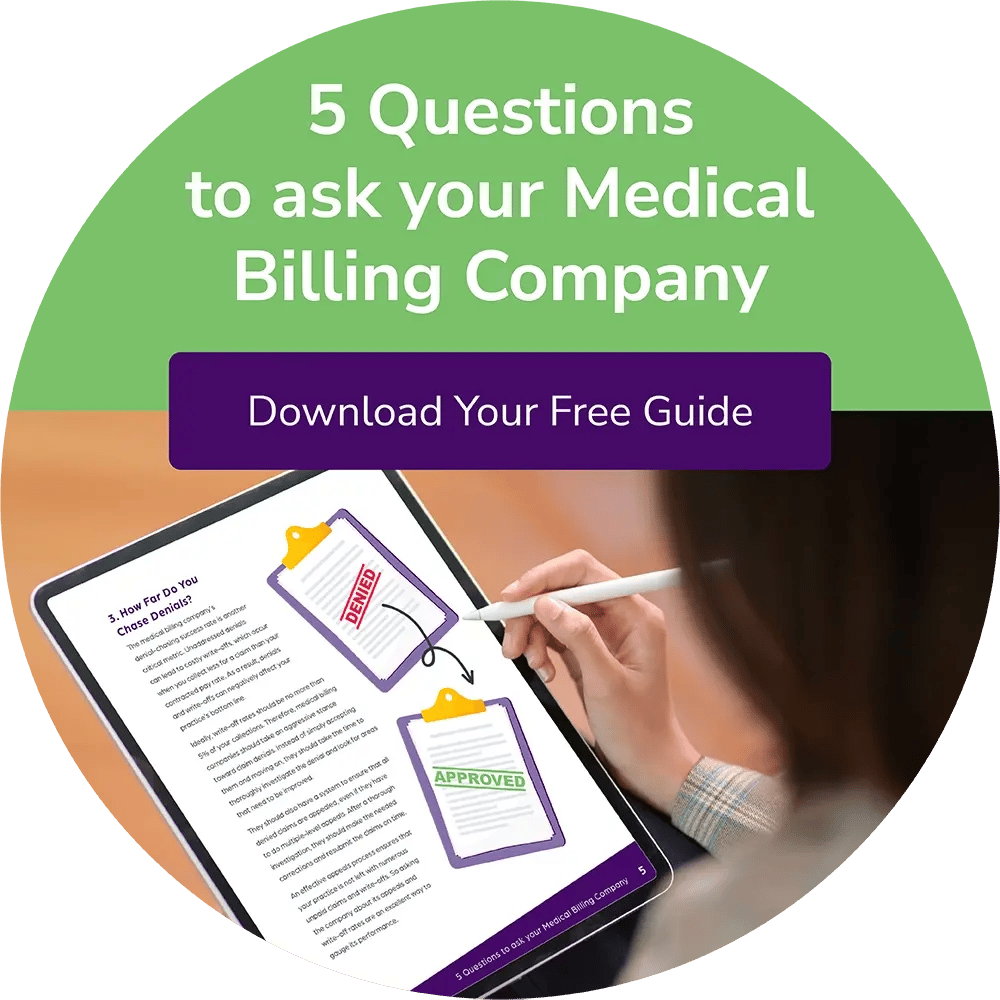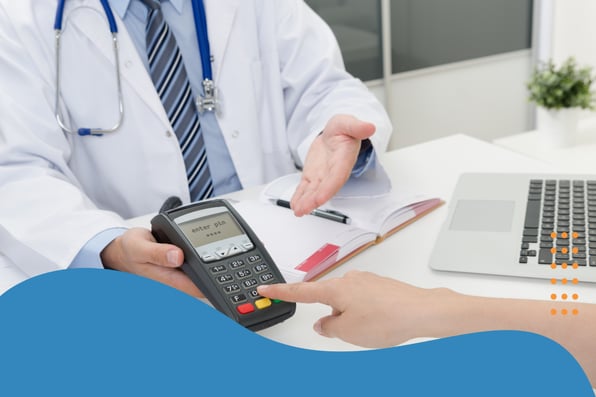Top Tips on How to Get Medical Coding Certification

Are you looking to become a certified medical coder? This process involves several key steps: completing your education, choosing the right training program, gaining practical experience, preparing for the certification exam, and passing it. In this article, we’ll guide you through each step on how to get medical coding certification and provide the essential information you need to succeed.
Key Takeaways
-
Medical coding certification enhances career opportunities, leading to higher salaries and recognition in the healthcare industry.
-
Key steps to achieving certification include completing education, choosing a reputable training program, gaining practical experience, and passing the certification exam.
-
There are several types of medical coding certifications available, such as CPC, CCA, and CCS, each suited to different career goals and healthcare settings.
Understanding Medical Coding Certification
Medical coding certification involves a set of standards and qualifications that demonstrate a coder’s expertise in interpreting medical documents and assigning proper codes. Maintaining accuracy in billing and ensuring compliance with healthcare regulations is crucial.
Becoming a certified professional coder not only enhances your career prospects but also contributes to the overall quality of healthcare delivery by ensuring proper coding practices. Benefits of certification include increased job opportunities, potential for higher salaries, and enhanced professional legitimacy within the healthcare sector.
What is Medical Coding?
Medical coding is the process of translating medical information into standardized codes used for recordkeeping and billing purposes. Medical coders review health record documentation and convert diagnoses, procedures, services, and equipment into medical codes. This ensures accurate coding of patient information, which is critical for delivering it to insurance companies. The efficiency of the healthcare system heavily relies on the precise work of medical coders to ensure accurate patient records and timely reimbursements. Attention to detail, understanding of medical terminology, and proficiency in coding systems are essential skills for medical coders.
Coders translate the services provided by healthcare providers into codes, while billers create claims based on those codes. Medical coding involves using standardized codes to represent medical services accurately for documentation and billing purposes. This process is crucial for maintaining the integrity of patient medical records and ensuring that healthcare providers receive timely reimbursements for their services.
Why Get Certified?
Becoming a certified medical billing and coding specialist opens the door to high-demand job opportunities in various healthcare settings. Employers prefer candidates with certification, as it increases competitiveness in the job market. Certification is valuable not only for novices but also for experienced professionals looking to enhance their job prospects. Certified coding and billing professionals can earn approximately 30% more than their non-certified counterparts, with the average salary for a Certified Professional Biller (CPB) being $56,652.
Certification in medical coding legitimizes your qualifications, making you a recognized professional in the healthcare field. This can lead to higher earning potential and preferred status with employers. The average salary for medical billing and coding professionals is $47,180 per year, reflecting the financial benefits of certification.
Overall, certification serves as a testament to your expertise and commitment to maintaining high standards in medical coding.
Steps to Achieve Medical Coding Certification
Embarking on a medical coding career involves several critical steps. Completing your education, choosing a suitable training program, gaining practical experience, preparing for the certification exam, and ultimately passing the exam are all essential milestones on this journey.
Each step plays a vital role in ensuring you are well-prepared and qualified to become a certified medical coder.
Complete Your Education
Before: The first step to becoming a medical coder is completing your education. It is essential to have a high school diploma or equivalent to begin a career in medical coding. A high school diploma provides foundational skills such as organizational skills and effective communication, which are valuable for medical coders. Aspiring medical coders can then enroll in in-person or online medical billing and coding certification programs offered by many colleges. These programs include professional associations, four-year degree programs, and certificate programs.
After:
- Complete your education by obtaining a high school diploma or equivalent.
- Develop foundational skills such as organizational skills and effective communication, which are valuable for medical coders.
- Enroll in in-person or online medical billing and coding certification programs offered by many colleges.
- Consider programs that include professional associations, four-year degree programs, and certificate programs.
Many colleges offer flexible programs designed specifically for medical coding. Typical requirements for an entry-level medical billing and coding position include completing a certificate or an associate degree and passing a certification exam. Meeting these educational requirements establishes a strong foundation for success in medical coding.
Choose a Suitable Training Program
Choosing the right training program is crucial for your success as a medical coder. Online training programs for medical billing and coding can be self-paced or instructor-led. Completion of training or significant experience is required to become eligible for certification exams in medical coding. When selecting a coding certification, consider the desired work settings such as hospitals or doctor’s offices. For instance, AAPC’s training provides comprehensive education covering everything needed to pass the certification exam.
The right training program will prepare you for the certification exam and equip you with the skills needed to excel in your coding career. Whether you prefer a self-paced program that allows you to study at your own pace or an instructor-led program that offers more structure, there are options available to suit your learning style and career goals.
Gain Practical Experience
Gaining practical experience is an essential step in becoming a successful medical coder. Internships, part-time jobs, and volunteering in healthcare settings can provide valuable on-the-job learning. These experiences not only improve coding skills but also offer insight into the healthcare industry and its operational aspects.
Engaging in hands-on experiences demonstrates initiative and can make candidates more appealing to potential employers. By enhancing your practical skills and job readiness, you increase your chances of securing a rewarding career in medical coding.
Prepare for the Certification Exam
Preparation for the certification exam is a critical step in achieving medical coding certification. Students typically start studying for the certification exam a month or two after completing their training. Study materials for the certification exam often include digital and physical textbooks.
By dedicating time to study and review the material, you can increase your chances of passing the exam and becoming a certified professional coder.
Pass the Certification Exam
Passing the certification exam is the final step in becoming a certified medical coder. Candidates typically need to complete a training program or have relevant experience to qualify for the certification exams. The minimum passing score for the certification exam is 70%.
Candidates who attend AAPC are three times more likely to pass their certification exams compared to other schools. It is important to inquire about certification pass rates to ensure you get the education you deserve.
Exploring Different Medical Coding Certifications
There are several medical coding certifications available, each with its own focus and significance. The main certifications include the Certified Professional Coder (CPC), Certified Coding Associate (CCA), and Certified Coding Specialist (CCS). Choosing the right certification depends on your career goals and the type of medical practice you wish to specialize in.
Accreditation from recognized organizations is crucial for ensuring quality in medical coding programs.
Certified Professional Coder (CPC)
The CPC certification is one of the most recognized credentials in the medical coding field. It focuses on a wide array of coding topics, including CPT, HCPCS, and ICD-10-CM. Students completing the program can take examinations such as Certified Coding Associate (CCA), Certified Coding Specialist (CCS), and Certified Professional Coder (CPC). The CPC certification is facilitated by AAPC and is essential for establishing a career in medical coding.
Obtaining the CPC certification demonstrates your proficiency in medical coding and enhances your career prospects. It is a valuable credential that employers look for when hiring medical coders. Achieving this certification opens doors to various job opportunities in the healthcare field and boosts your earning potential.
Certified Coding Associate (CCA)
The Certified Coding Associate (CCA) certification is offered by the American Health Information Management Association (AHIMA). It is an entry-level credential. It is designed for individuals pursuing a career in medical coding and is recognized for its focus on core coding skills and knowledge of various coding systems. Obtaining a CCA certification enhances career prospects by demonstrating validated skills, leading to higher employment opportunities in the healthcare industry.
CCA certified professionals typically work in diverse job roles, including hospitals, clinics, insurance companies, and government agencies. They focus on accurate coding of patient medical diagnoses and treatments.
Certified coding associates can expect competitive salaries, which can vary based on location and experience. Continued professional development and further specializations can elevate salary potential and career growth for CCA certified professionals.
Certified Coding Specialist (CCS)
The CCS certification is aimed at individuals proficient in coding and classifying medical data from records, focusing on both inpatient and outpatient settings. Candidates should have completed relevant courses in anatomy, physiology, and coding methods, or possess substantial coding experience to qualify for the CCS exam. The CCS exam consists of 107 questions, with a passing score set at 300. Candidates have four hours to complete the exam.
Those seeking the CCS credential must complete continuing education requirements to maintain their certification every two years. The certification process for CCS includes preparation, application, and scheduling the exam through Pearson Vue. As of December 2024, there were over 32,000 certified CCS professionals, indicating the certification’s recognition in the field.
Financial Considerations for Medical Coding Certification
Obtaining a medical coding certification involves various costs related to training programs and exam fees. Typical expenses for medical coding certification include tuition for training programs, along with exam registration fees, which can vary based on the certification sought.
Exploring financial assistance options ensures that aspiring medical coders can manage the costs associated with their certification more effectively.
Certification Costs
The average tuition for a medical billing and coding program is approximately $1,569. A certificate program from AAPC costs around $2000. Students can expect to pay about $234 per credit hour for medical billing and coding courses. Additional taxes may apply to the costs of medical coding programs, dependent on the student’s location. It’s advisable to consider additional fees such as registration and material costs alongside tuition.
When budgeting for your medical coding certification, it’s important to consider all potential expenses. This includes not only the tuition fees but also additional costs such as registration fees and study materials. Planning ahead and exploring financial options helps in making informed decisions about education and certification.
Financial Aid and Scholarships
Over 30% of students enrolled in medical coding programs receive some form of financial assistance. Several national private scholarships are available for students pursuing medical billing and coding programs, often based on merit or financial need.
Additionally, many employers offer tuition reimbursement programs that may cover some education costs for employees seeking certification in medical billing and coding. Some programs also offer flexible payment plans to help manage tuition costs effectively.
Exploring these financial aid options can reduce the financial burden and make certification more affordable.
Career Opportunities and Advancement
Medical coding professionals are in high demand due to the aging population and the growth of electronic health records. Certification in medical coding can lead to competitive salaries and various career advancement opportunities. Many medical coding positions offer the flexibility of remote work, enhancing work-life balance.
The role of medical coders is crucial for maintaining financial stability in healthcare by ensuring accurate billing and reimbursement.
Job Roles and Settings
Common job titles for medical coders include medical biller, coding specialist, and medical records technician. Medical coders can find employment in various healthcare settings, such as hospitals, clinics, insurance companies, and outpatient facilities.
The diversity in job settings allows coders to choose a work environment that best suits their preferences and career goals.
Salary Expectations
Medical records technicians typically earn an average salary of around $54,032 annually. Bill analysts earn an average of about $52,871 per year. AAPC offers resources for salary negotiation and career growth strategies to its members.
Career counseling, salary negotiation, and career advancement guidance are provided to help coders increase their earnings. Average salaries for medical coding professionals can vary significantly based on certification and role.
Professional Development
Continued education and acquiring additional certifications can significantly enhance career advancement for medical coders. Certified medical coders can advance their careers by seeking additional professional development opportunities and earning higher degrees.
With additional degrees and experience, certified professional coders can achieve promotions to senior positions and receive salary increases and other benefits.
Choosing the Right Medical Coding Program
When choosing a medical billing and coding program, consider necessary skills, costs, training features, and certification pass rates. The average cost for an Associate of Applied Science degree in medical billing and coding ranges from $4,000 to $10,000 based on the institution. The average tuition for medical billing and coding programs in the U.S. is approximately $14,000.
Self-paced online training and instructor-led online training options are available for medical billing and coding certification. You can train online for your medical billing and coding certification. Medical coding programs offer flexibility with no exam deadlines or set start dates.
Evaluating Program Curriculum
Evaluating the curriculum of a medical coding program is crucial to ensure comprehensive training and preparedness for certification. Professional training courses for medical coding typically take four months or less to complete.
A well-structured medical billing and coding program includes study materials such as three digital textbooks, three physical textbooks, study guides, and study units. Online programs often allow students to study at their own pace, providing flexibility that can enhance learning.
Comparing Costs and Payment Options
Various financial options are available to help manage the costs of medical coding certification programs, including discounts and payment plans. Utilizing payment plans or finding discounts can significantly reduce the financial burden associated with certification programs.
Comparing tuition fees is essential to ensure that you select a program that fits your budget while still offering quality education. Exploring all financial options, including the potential for financial aid and scholarships, is vital to making an informed decision about your program choice.
Checking Certification Success Rates
Programs with higher pass rates can significantly enhance your chances of successfully obtaining certification. Programs with a higher pass rate often provide better resources and support for their students. Accredited programs generally have higher certification success rates compared to non-accredited ones.
Checking certification success rates helps in choosing an educational path that maximizes the chances of success.
Summary
Medical coding certification is a vital step for anyone looking to build a successful career in the healthcare field. By completing the necessary education, choosing the right training program, gaining practical experience, and passing the certification exam, you can become a certified professional coder. Financial considerations, including costs and available financial aid, are important factors to manage effectively. Understanding the different certifications available and selecting the right medical coding program are crucial for maximizing your career potential. By following these steps and staying committed to your professional development, you can achieve a rewarding career in medical coding and make a significant impact on the healthcare industry.
Frequently Asked Questions
What is medical coding?
Medical coding is the translation of medical information into standardized codes for recordkeeping and billing. This process involves reviewing health record documentation and converting diagnoses, procedures, and services into codes.
Why should I get certified in medical coding?
Getting certified in medical coding is essential as it significantly improves your career prospects, validates your expertise, and can lead to higher salaries and more job opportunities in the healthcare industry. Employers consistently favor certified coders, ensuring a competitive edge in the job market.
What are the main certifications available for medical coders?
The main certifications for medical coders are the Certified Professional Coder (CPC), Certified Coding Associate (CCA), and Certified Coding Specialist (CCS), each serving distinct roles within the healthcare sector. Pursuing these certifications can enhance your career opportunities significantly.
How much does it cost to obtain a medical coding certification?
The total cost to obtain a medical coding certification typically ranges around $1,569 for tuition, plus expenses for exam registration and study materials. Therefore, individuals should budget accordingly for these additional costs.
What career opportunities are available for certified medical coders?
Certified medical coders have numerous career opportunities in hospitals, clinics, insurance companies, and outpatient facilities, with roles such as medical biller, coding specialist, and medical records technician. This certification not only enhances job prospects but also offers competitive salaries and avenues for career advancement.
Blog Post Tags
Medical Billing SoftwareGet Awesome Content Delivered Straight to Your Inbox!
Posts by topic
- RCM
- Medical Billing Software
- Outsource Your Medical Billing
- Compliance
- Physician Billing Services
- Denial Management
- AI
- Data Analytics
- EHR
- ERA
- reporting
- Automation
- Business
- Claim Scrubbing
- Coding
- Community
- Events
- LTPAC
- Medical Billing Companies
- Medicare
- Press Release
- Revenue Cycle Management
- business development
- clearinghouse See All See Less





